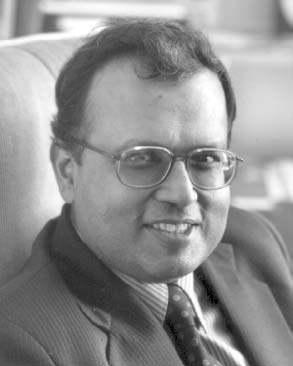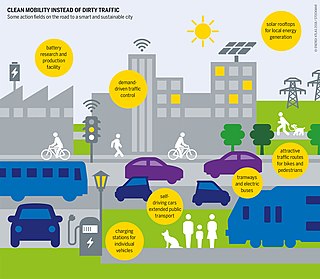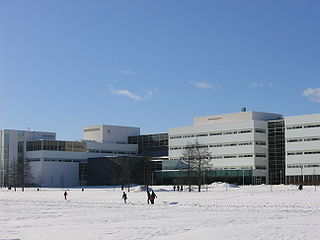
Enterprise resource planning (ERP) is the integrated management of main business processes, often in real time and mediated by software and technology. ERP is usually referred to as a category of business management software—typically a suite of integrated applications—that an organization can use to collect, store, manage and interpret data from many business activities. ERP systems can be local-based or cloud-based. Cloud-based applications have grown in recent years due to the increased efficiencies arising from information being readily available from any location with Internet access.

University of Rovira i Virgili is located in the Catalan cities of Tarragona and Reus, Spain. Its name is in honor of Antoni Rovira i Virgili.

Knowledge transfer refers to transferring an awareness of facts or practical skills from one entity to another. The particular profile of transfer processes activated for a given situation depends on (a) the type of knowledge to be transferred and how it is represented and (b) the processing demands of the transfer task. From this perspective, knowledge transfer in humans encompasses expertise from different disciplines: psychology, cognitive anthropology, anthropology of knowledge, communication studies and media ecology.
Knowledge workers are workers whose main capital is knowledge. Examples include ICT professionals, physicians, pharmacists, architects, engineers, scientists, design thinkers, public accountants, lawyers, editors, and academics, whose job is to "think for a living".

Amar Gupta is an Indian computer scientist based in the United States. Gupta has worked in academics, private companies, and international organizations in positions that involved analysis and leveraging of opportunities at the intersection of technology and business, as well as the design, development, and implementation of prototype systems that led to widespread adoption of new techniques and technologies.

A smart city is an urban area that uses digital technology to collect data and to operate/provide services. Data can be collected from citizens, devices, buildings, cameras. Applications include traffic and transportation systems, power plants, utilities, urban forestry, water supply networks, waste disposal, criminal investigations, information systems, schools, libraries, hospitals, and other community services. Smart cities are characterized by the ways in which their local governments monitor, analyze, plan, and govern the city. In a smart city, the sharing of data extends to businesses, citizens and other third parties who can derive benefit from using that data. The three largest sources of spending associated with smart cities as of 2022 were visual surveillance, public transit, and outdoor lighting.
Service innovation is used to refer to many things. These include but not limited to:
- Innovation in services, in service products – new or improved service products. Often this is contrasted with “technological innovation”, though service products can have technological elements. This sense of service innovation is closely related to service design and "new service development".
- Innovation in service processes – new or improved ways of designing and producing services. This may include innovation in service delivery systems, though often this will be regarded instead as a service product innovation. Innovation of this sort may be technological, technological - or expertise -based, or a matter of work organization.
- Innovation in service firms, organizations, and industries – organizational innovations, as well as service product and process innovations, and the management of innovation processes, within service organizations.
The Digital Government Society or DGS is an international, nonprofit, professional society devoted to advancing democratic digital government via research, policy, and best practice, including original countries, Canada, the United States, and Mexico, and other countries around the world.

The Agora Center is a separate institute at the University of Jyväskylä in Central Finland. By its nature, the Agora Center is interdisciplinary and networked. Its purpose is to conduct, coordinate, and administrate top-level research and development that relates to the knowledge society and which places emphasis on the human perspective. The research and development is conducted in the form of fixed-period projects in cooperation with the University of Jyväskylä’s other faculties and separate institutes, businesses, the public sector and other relevant parties. The Agora Center also promotes researcher training through its various research projects. One of the core missions of the Agora Center is to effectively combine research and development with education. The project staff includes a high number of students and post-graduate students.
Daniel Berg is a educator, scientist and was the fifteenth president of Rensselaer Polytechnic Institute.

Vivek Kundra is a former American administrator who served as the first chief information officer of the United States from March, 2009 to August, 2011 under President Barack Obama. He is currently the chief operating officer at Sprinklr, a provider of enterprise customer experience management software based in NYC. He was previously a visiting Fellow at Harvard University.
Innovation management is a combination of the management of innovation processes, and change management. It refers to product, business process, marketing and organizational innovation. Innovation management is the subject of ISO 56000 series standards being developed by ISO TC 279.
The term private-collective model of innovation was coined by Eric von Hippel and Georg von Krogh in their 2003 publication in Organization Science. This innovation model represents a combination of the private investment model and the collective-action innovation model.

Georg von Krogh is a Norwegian organizational theorist and Professor at the Swiss Federal Institute of Technology in Zurich and holds the Chair of Strategic Management and Innovation. He also serves on Strategy Commission at ETH Zurich.
Communities that support innovation have been referred to as communities of innovation (CoI), communities for innovation, innovation communities, open innovation communities, and communities of creation.

The Science and Technology Information Center (STIC) is an Ethiopian organisation which provides information to support scientific and technological (S&T) activities in the country. STIC has published information on the financing of research and development and on the nature and progress of innovative projects, and in 2014 was planning to introduce bibliometric monitoring of publications in S&T. The center has also provided information and communications technology facilities including a digital library, a patent information system, an automated personnel management system, and a S&T-related database.
Science and technology is Jordan's growing economic sector. This growth is occurring across multiple industries, including information and communications technology (ICT), solar and wind energy and nuclear technology.
Science and technology in Kazakhstan – government policies to develop science, technology and innovation in Kazakhstan.

Thailand Creative & Design Center is a public resource center in Thailand focused on the design and creative industries. It was founded in 2004 as part of the Office of Knowledge Management and Development, a government-owned public organization, and opened on 14 November 2005. Its oversight was transferred to the newly created Creative Economy Agency in 2018.










